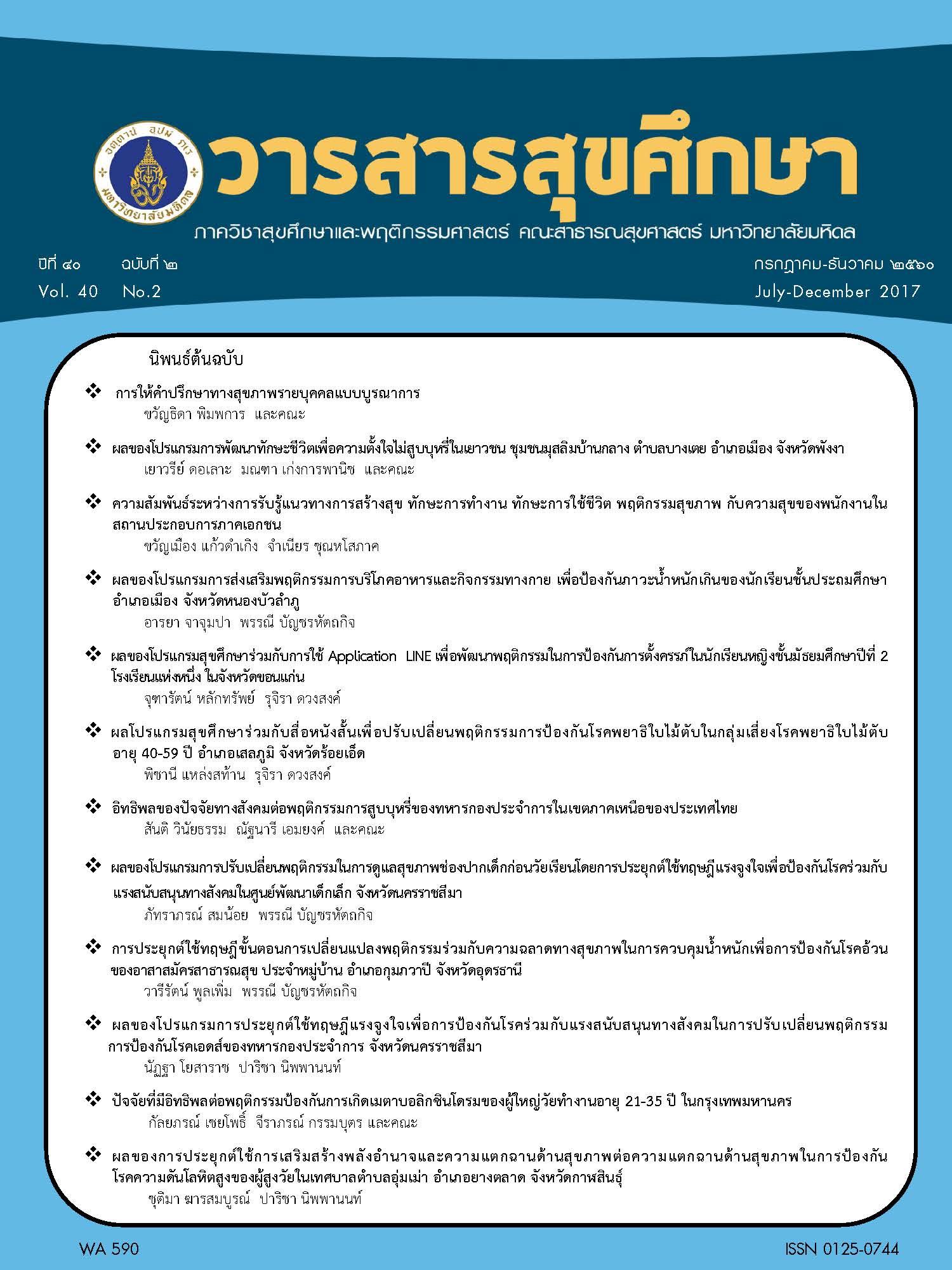Applying Stages of Change and Health Literacy on Weight Control and Obesity Prevention among Village Health Volunteers in Kumphawapi District, Udon Thani Province
Keywords:
Obesity, Weight Control, Weight Control for Obesity Prevention among Village Health VolunteersAbstract
In Thailand, overweight and obesity have dramatically increased rate of occurrence causing numerous diseases and health complications. Therefore, weight control should be ensured for good Body Mass Index measurement. Consequently, this quasi-experimental research aimed to study and apply the stages of change on behavior as well as health literacy regarding weight control of the village health volunteers in order to prevent obesity. The sample of the study included health volunteers in the age group of 35 to 59. They were divided into two groups; an experimental and a comparison groups with 35 in participants each group. A 12-week weight control program comprised of many activities such as lectures, guideline, modeling, training and group exercise . Data was collected before and after the intervention by questionnaires. Ordinary descriptive statistics were used for assessing the outcome of the study and for analytical purposes, inferential statistics such as the paired t-test and the independent t-test was applied. Statistical significance was set at p<0.05
The results showed that after interventions, the experimental group had statistically the mean scores of knowledge on obesity prevention, health literacy, perceived self-efficacy, outcome expectation on weight control programs, as well as the application and practice to control weight higher than the experimental group and higher than those the comparative group (p-value<0.001). After interventions, the mean scores of BMI and body fat percentage has statistically lower than the comparison group (p<0.001).



